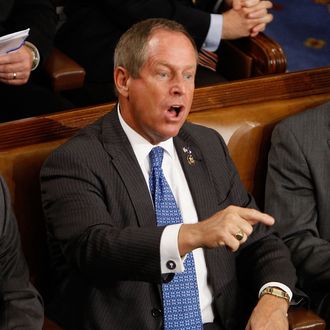
Liberals and conservatives differ from each other in much more than their politics. They have different tastes in food, in art, in leisure pursuits; they have different personality traits and cognitive styles; they have different orientations to change; they pay attention to different things; and they are biologically different, perhaps down to their DNA. One unifying difference identified in research conducted by Kevin Smith, John Alford, and myself, is that, compared to conservatives, liberals are less responsive (and attentive to) negative situations. (We write about this in our new study (PDF) in Behavioral and Brain Science, and also in our book, Predisposed: Liberals, Conservatives, and the Biology of Political Differences.)
Conservatives are more likely to have a physiological response and to devote more attention to disgusting things (which can carry pathogens) and to threatening things (which can harm or kill). Given this difference, it makes sense that conservatives are less eager to go in search of new information and new situations unless they are relatively certain that what they find will not be negative. Compared to liberals, conservatives consistently report that they are more conscientious and less open to new experiences. They prefer tradition and clarity, whereas liberals are more willing to take a flyer on the unknown. (As Emerson noted long ago, “the two parties which divide the state, the party of conservatism and that of innovation, are very old and have disputed possession of the world ever since it was made.”)
As a result, conservatives are more likely than liberals to take a literal and unchanging reading of texts, whether it be the Bible, the Koran, or the U.S. Constitution. They are more likely to favor protective policies such as increased defense spending, capital punishment, and stand your ground laws, and they are more likely to oppose support for “out-groups,” such as open immigration policies and expanded foreign aid. It is important to note that none of this means liberals are right and conservatives are wrong, or vice versa. It means that we all have biases — many lurking beneath conscious awareness and buried in our physiological constitution — and these biases manifest themselves in all areas of our lives including political preferences.
The implication of our findings is that we should be more tolerant of those with opposing beliefs (because they are biologically structured that way). We should not expect to be able to change their views with logical arguments, but we should realize we need to meet them halfway. When dealing with people with strong predispositions that are inconsistent with ours, the key is compromise and not deliberation (though there are plenty of people without clear predispositions who are persuadable).




